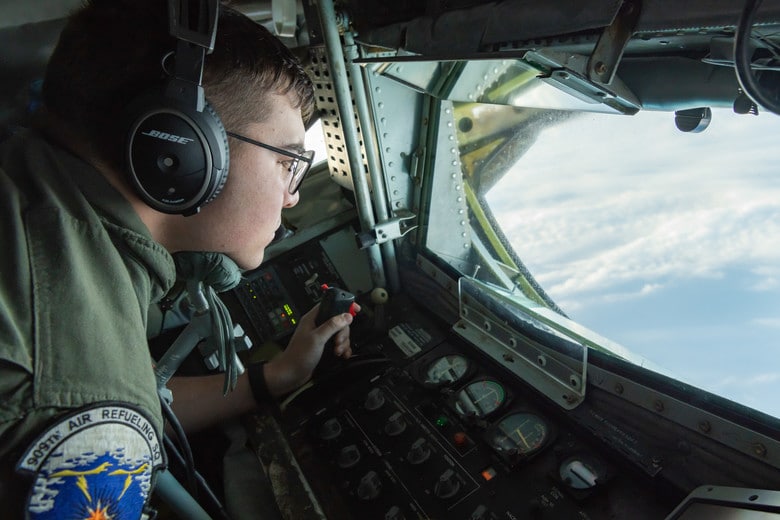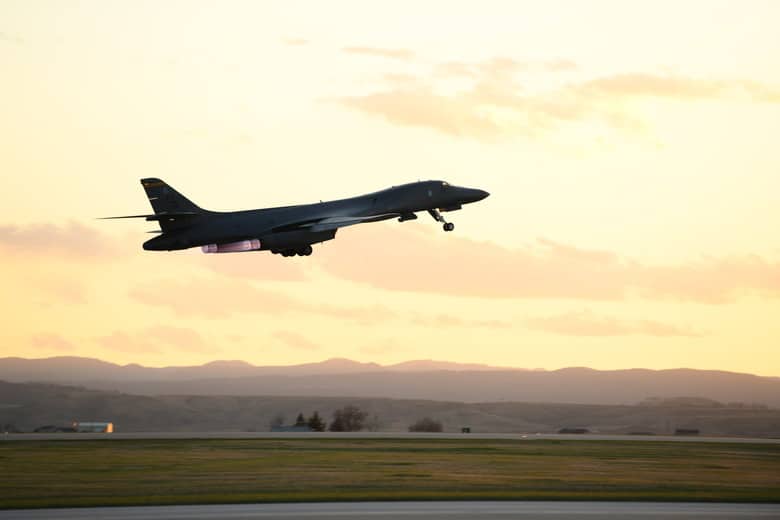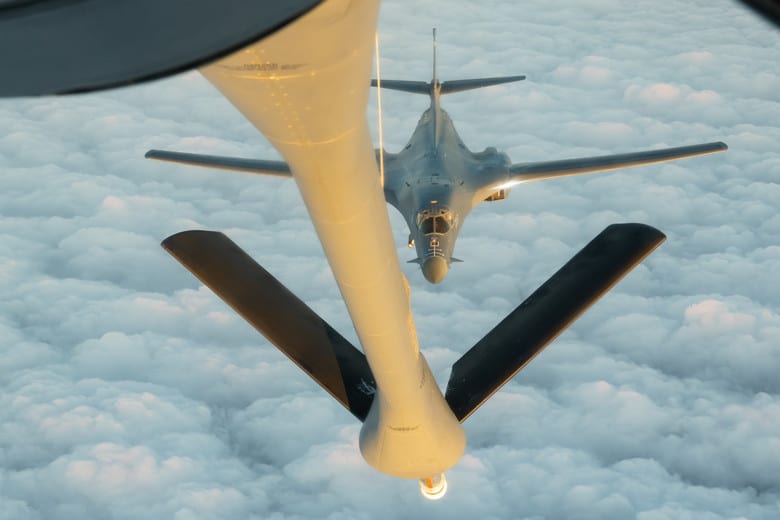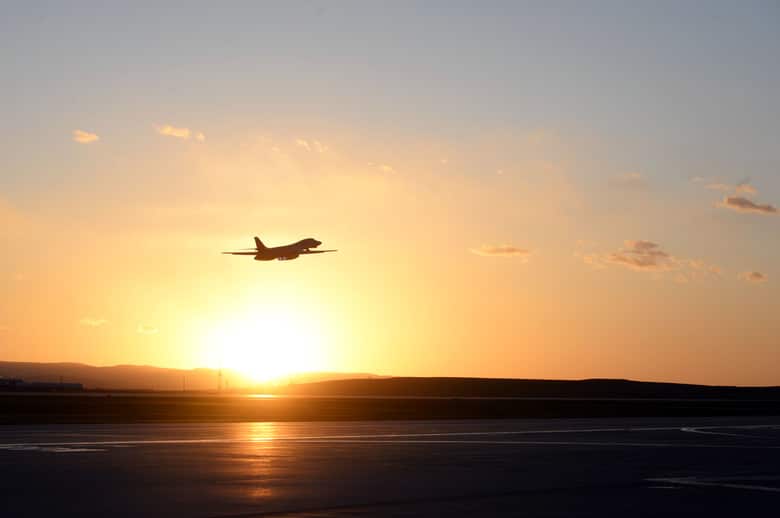Two U.S. Air Force B-1B Lancer bombers completed a 32-hour mission over the South China Sea on Thursday as part of a strategic effort to maintain a persistent bomber presence in the region.
Pacific Air Forces described the mission in a Thursday press release. The bombers, from the 28th Bomb Wing, took off from Ellsworth Air Force Base, South Dakota, and completed the roundtrip flight with refueling support from 909th Air Refueling Squadron KC-135 Stratotankers.

U.S. Air Force Airman 1st Class Dillon Neal, boom operator assigned to the 909th Air Refueling Squadron, prepares to refuel a B-1B Lancer from the 28th Bomb Wing, Ellsworth Air Force Base, S.D., during a 34-hour round-trip sortie to conduct operations over the Pacific as part of a joint U.S. Indo-Pacific Command and U.S. Strategic Command (USSTRATCOM) Bomber Task Force (BTF) mission April 30, 2020. (U.S. Air Force photo by Senior Airman Cynthia Belío)
“This operation demonstrates the U.S. Air Force’s dynamic force employment model in line with the National Defense Strategy’s objectives of strategic predictability with persistent bomber presence, assuring allies and partners,” the Pacific Air Forces press release stated.
The mission was launched amid new efforts by China’s People’s Liberation Army Navy to occupy key islands in contested areas of the South China Sea. Beijing recently named and declared municipal districts over otherwise uninhabited islands in the South China Sea, which have been contested for control by Vietnam and Taiwan.

A B-1B Lancer assigned to the 28th Bomb Wing launches from Ellsworth Air Force Base, S.D., April 28, 2020, to support a Bomber Task Force mission in the Indo-Pacific region. (U.S. Air Force photo by Senior Airman Nicolas Erwin)
The National Defense Strategy for bomber missions is to provide a predictable strategic presence of U.S. bombers, to deter behavior like that shown by China’s advancements into the South China Sea.
“USSTRATCOM has conducted BTF [Bomber Task Force] missions (previously known as Bomber Assurance and Deterrence missions) since 2014 as a demonstration of the U.S. commitment to collective security, and to integrate with Geographic Combatant Command operations,” the press release stated. “The first mission included B-52H Stratofortresses and B-2 Spirits traveling from the continental United States to Joint Base Pearl-Harbor Hickam in April 2014.”

A U.S. Air Force B-1B Lancer from the 28th Bomb Wing, Ellsworth Air Force Base, S.D., approaches a KC-135 Stratotanker from the 909th Air Refueling Squadron, to refuel during a 34-hour round-trip sortie to conduct operations over the Pacific as part of a joint U.S. Indo-Pacific Command and U.S. Strategic Command (USSTRATCOM) Bomber Task Force (BTF) mission April 30, 2020. (U.S. Air Force photo by Senior Airman Cynthia Belío)
Two U.S. Navy guided-missile destroyers, USS Bunker Hill and USS Barry, recently performed freedom of navigation operations, passing by the contested Paracel and Spratly Islands.
“Unlawful and sweeping maritime claims in the South China Sea pose a serious threat to the freedom of the seas, including the freedoms of navigation and overflight and the right of innocent passage of all ships,” spokesperson Cmdr. Reann Mommsen said of the recent Navy destroyer mission.
Mommsen said freedom of navigation operations (FONOPS) are not aimed at any particular country, but rather are used to uphold “the rights, freedoms, and lawful uses of the sea recognized in international law by challenging the restrictions on innocent passage imposed by China, Vietnam, and Taiwan.”

A B-1B Lancer assigned to the 28th Bomb Wing launches from Ellsworth Air Force Base, S.D., April 28, 2020, to support a Bomber Task Force mission in the Indo-Pacific region. This operation demonstrates the U.S. Air Force’s dynamic force employment model in line with the National Defense Strategy’s objectives of strategic predictability and operational unpredictability. (U.S. Air Force photo by Airman Quentin Marx)



